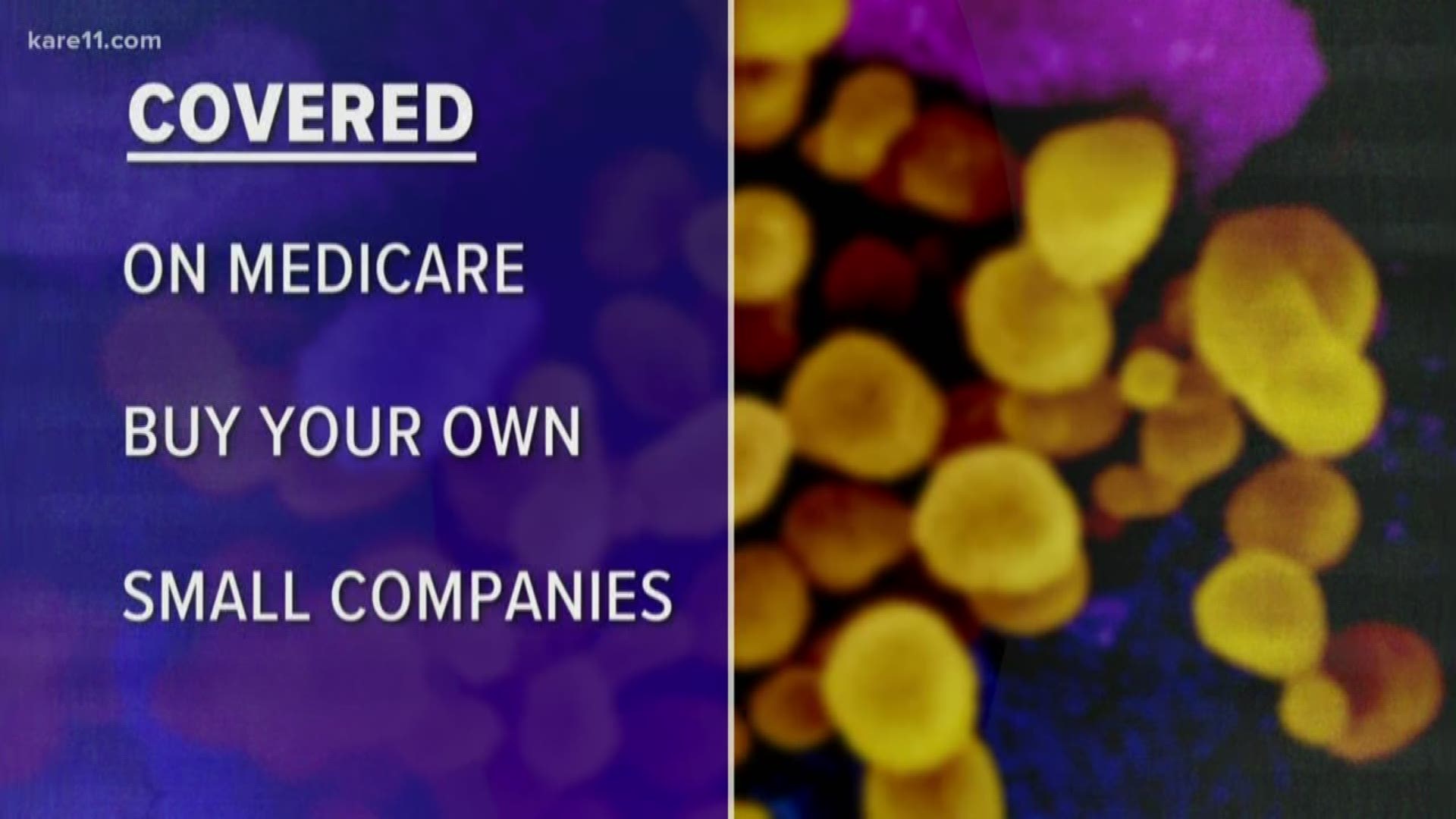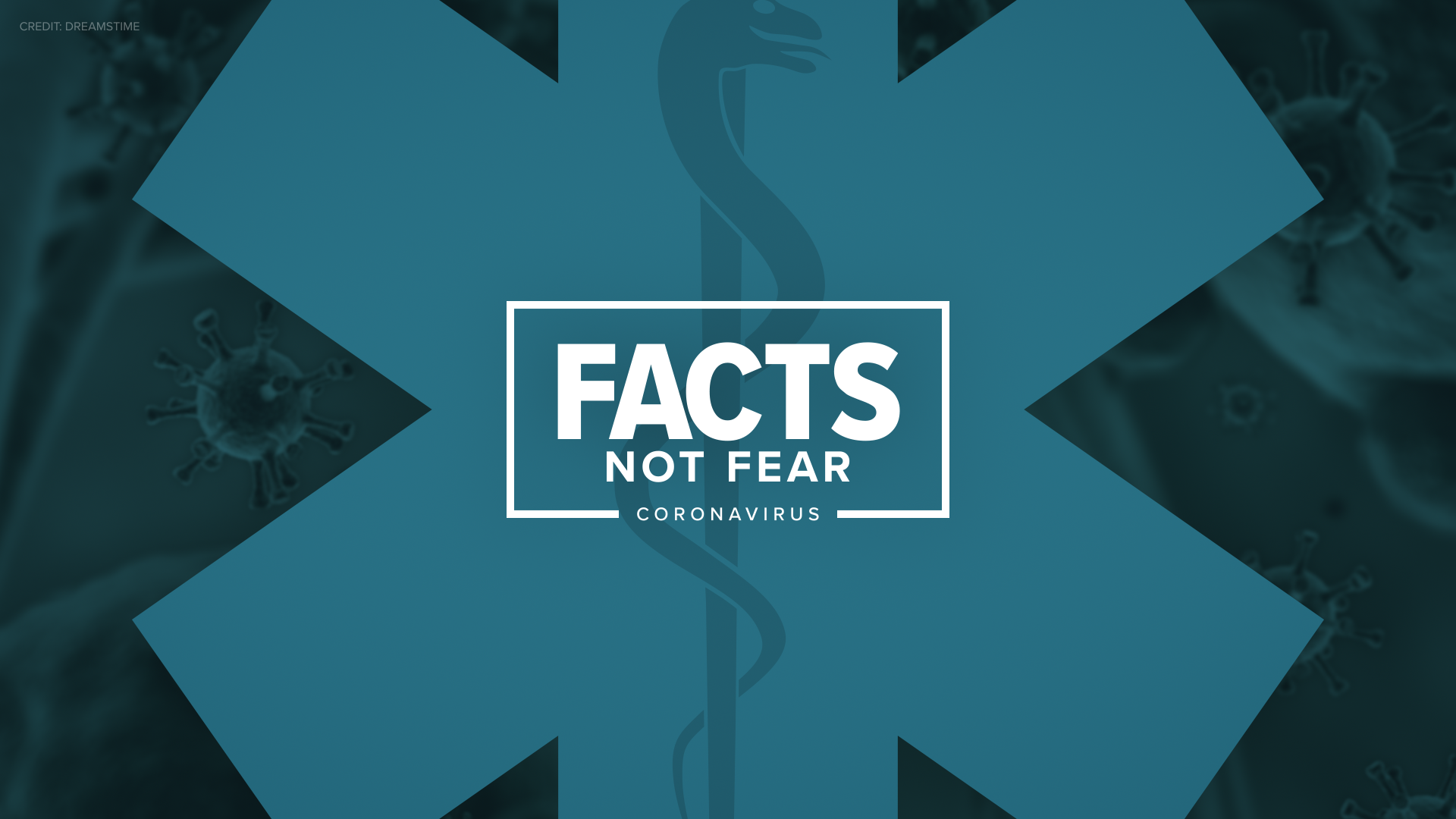MINNEAPOLIS — People are preparing all sort of ways for the coronavirus (COVID-19), changing travel plans, working from home, and some are buying up every grocery and roll of toilet paper they can find.
But something you might not think about is how the virus is covered by insurance.
"We don't like to think about health insurance, right? That's something no one thinks about until they need it.”
It’s Jon Hess’s job to think about things like this.
He's the CEO at Athos Health, a company that teaches people how to maximize their insurance and save money.
"Testing is covered. If you have to get tested for the coronavirus, that will be by the CDC," Hess says.
“They may still bill your insurance. They’ll need your insurance card, but you won’t be responsible for any co-pay or out of pocket costs.”
But after the initial test, Hess says the medical care you receive may or may not be covered.
"It gets more complicated," Hess says.
“If you have Medicare, the government has said that they will waive all out of pocket costs to treat coronavirus. That includes drugs, doctor visits, hospitalizations, etc.”
Hess says the same goes for patients who bought their health insurance through the exchange.
“And with a private plan, or if you work for a small employer that is self-insured, you’re covered,” Hess says.
"Where it gets more complex is with large employers that are self-insured. That's where the employer is funding the health insurance or paying for the health insurance. They have to opt-in for the same coverage.”
Hess says this goes for most big companies with more than 300 employees that pay for all or some of their employees insurance.
If that's the case you're in, he recommends contacting your HR department to see if you're fully covered.
"Many employers might not even realize that they have to make this selection. If I worked for a company that was self-insured, that had this situation, I would be talking to my HR team,” Hess says.
But even if you are fully covered for the coronavirus, Hess says there might be some hidden costs.
"If you get tested and you just have influenza, then you're going to have to pay out of pocket for that. You're going to have to pay out of pocket for that test, for any care associated with that," Hess says.
That's why he recommends staying in-network as much as you can so you can avoid higher out-of-network costs.
Another big question people have is if you do get the coronavirus, and have to go into quarantine, will you still get paid?
"Last I've heard, there's still no decision on how they're going to pay for that, who's going to pay for that. You might just be out those wages. However, because of FMLA, the Family and Medical Leave Act, they can't fire you for being out, but they can keep you without pay.
Hess says every company is different, some employers may let employees use paid leave, vacation days, or other sources to keep getting paid if they go into a quarantine, but others might not.
“That's a really big concern we're seeing out there. A lot of those people, their incomes are at such a level that they have to work. They can’t afford to go two weeks without pay,” Hess says.
He says it's something federal health officials and the White House are working on to make sure those who are sick have the financial means to stay home and slow down the spread.
"My advice is right now, we know this is out there, do some research before you're sick, before anything happens, so if something would happen to you, a loved one, a family member, you would know what your coverage is."
Visit kare11.com/coronavirus for comprehensive coverage, find out what you need to know about the Midwest specifically, learn more about the symptoms, and keep tabs on the cases around the world here. Have a question? Text it to us at 763-797-7215.


